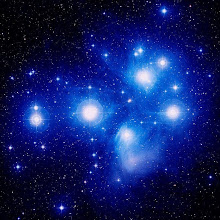
I was sad to hear of the passing of author Michael Crichton last week. I first remember reading Crichton when his popular novel Jurassic Park became an instant classic on the big screen. I also recall devouring some of his other works, such as Sphere and Rising Sun, on family vacations and feeling like I was reading a new kind of science fiction, a kind that reflected the truly possible. While he certainly wasn't the first author to try this type of writing, he became one of the best known of his generation. Some scientists would later criticize Crichton for using bad science in some of his books; in particular he has been called out for questioning the scientific consensus on climate change. But the fact remains that Crichton successfully wove narrative storytelling with actual science and technology to make realistic science fiction an exciting genre for a new generation of readers.
Of course, Crichton's books were easily adaptable into box office successes. I don't think anyone will ever hear the word "Jurassic" again without thinking of his fanciful story about turning dino DNA into real terrifying beasts. And I've lost count of the articles that have since speculated about bringing long-extinct animals back to life.
Crichton will leave the world with one more work, to be published posthumously. Assuming the author was aware of his medical condition during its writing, it'll be interesting to see whether Crichton throws down a final exclamation point on his storied career. ∞

